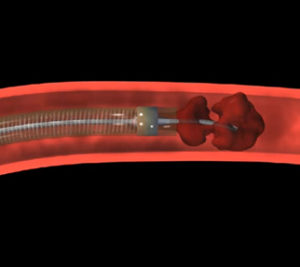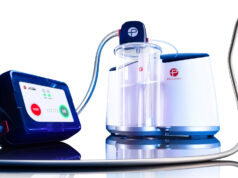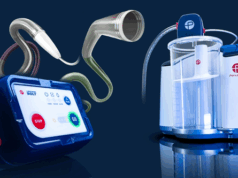 Penumbra has announced the presentation of the results of the ASTER trial, the first independent, prospective, randomised trial comparing the use of Penumbra’s aspiration system to stent retriever, in the opening plenary session at the International Stroke Conference in Houston, Texas.
Penumbra has announced the presentation of the results of the ASTER trial, the first independent, prospective, randomised trial comparing the use of Penumbra’s aspiration system to stent retriever, in the opening plenary session at the International Stroke Conference in Houston, Texas.
The results provide additional evidence of Penumbra’s aspiration system as an effective frontline thrombectomy approach for acute ischaemic stroke as part of the ADAPT (A direct aspiration, first pass technique).
The ASTER (Adapt vs. stent retriever) trial is a prospective, randomised controlled study that compared the safety and efficacy of the Penumbra aspiration system used frontline as part of the ADAPT technique vs. stent retrievers. The primary endpoint was end of procedure revascularisation (TICI 2b/3). The study enrolled 381 patients at eight centres in France over 12 months beginning in October 2015. Penumbra provided an institutional grant to support the ASTER Trial.
“The ASTER study provides evidence that starting with Penumbra aspiration first as part of the ADAPT technique is similar to the stent retriever technique,” said Michel Piotin, principal investigator and interventional neuroradiologist at Rothschild Fondation Hospital in Paris. “The ADAPT technique offers the possibility to easily add a stent retriever following Penumbra aspiration if needed, leading to time savings.”
The data showed that the ADAPT technique compared favourably: 85.4% of patients treated with Penumbra’s aspiration system achieved the primary endpoint of TICI 2b/3 at the end of the procedure compared with 83.1% of patients treated with stent retrievers (p=0.53). Moreover, 63% of patients treated with Penumbra’s aspiration system achieved the secondary endpoint of TICI 2b/3 after frontline treatment compared to 67.7% with stent retrievers (p=0.33).
“The ASTER trial shows no significant difference in revascularisation rate and safety using either thrombectomy technique – Penumbra aspiration and stent retrievers – for acute ischaemic stroke patients with large vessel occlusions,” said Bertrand Lapergue, Division of Neurology, Stroke Center, Foch Hospital, University Versailles Saint-Quentin en Yvelines (France) and scientific coordinator for the study. “The broad eligibility criteria achieved in the ASTER Trial make the results generalisable to the majority of stroke patients with large vessel occlusions.”
Secondary safety endpoints presented, including embolization in new territory (ENT) and symptomatic intracranial hemorrhage (sICH), were not statistically different between the two arms.
“The ASTER Trial builds on the results of the 3D trial, providing additional evidence supporting the use of Penumbra System direct aspiration devices as a first-line treatment for acute ischaemic stroke patients,” said Adam Elsesser, chairman, chief executive officer and president of Penumbra. “The ADAPT technique with the Penumbra System as a frontline approach together with complementary adjunctive devices when needed offers a cost-effective solution for treating stroke patients, which is critical as patient access to mechanical thrombectomy is further expanded.”










